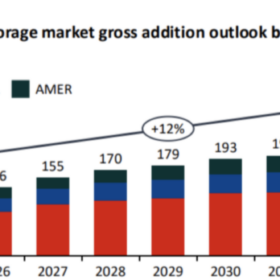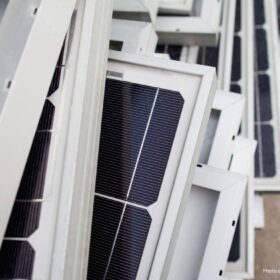The New South Wales (NSW) Department of Climate Change, Energy, the Environment and Water is considering changing its definition of long-duration storage from eight hours to four hours to help meet legislated targets to have 2 GW at 16 GWh of storage by 2030.
The Australian Solar Thermal Research Institute (ASTRI) and the Australian Solar Thermal Energy Association (AUSTELA) have expressed concern that the change would disincentivise the construction of 12-hour-plus storage technologies, which are critical to ensuring the reliability and affordability of NSW’s electricity system as coal is phased out.
ASTRI and AUSTELA advocate consideration of concentrated solar thermal power and storage (CSP) systems, where mirrors capture the sun’s heat and store it in molten salt. The stored heat can then be used, on demand, as required to drive a turbine which generates power, typically for around 15 hours but up to 24 hours in some formats.
Director of ASTRI, Dominic Zaal, said his organisation and AUSTELA had made a joint submission to the department expressing caution against the proposal to redefine long-duration storage (LDS) because of the risk it posed to the system, and because changing the definition of LDS would not resolve the challenges that NSW is facing.
“The problem for NSW is that in the next decade, three of the four remaining coal-fired power stations will close, and that removes around 70% of the system’s capacity,” said Zaal. “Coal generators cover the overnight electricity market and they are the safety net for renewables’ reliability events. When you build renewable storage to replace coal, four-hour battery systems are not enough and do not resolve the issue.”
Zaal said the shift in focus away from long-duration intraday storage, to short-duration battery storage, is a false economy. While it might help to meet a short-term target, it will ultimately end up costing consumers more because you end up with over investment in short duration storage, at the expense of the longer duration storage the system actually needs. In essence, you pay to defer the problem, but not to actually fix it.
Zaal said the fall-off in commitment to longer duration intraday storage, in excess of eight hours, should be a signal to more accurately incentivise these solutions, rather than reduce the storage benchmark.
“The obvious renewable technologies to cover the retired coal assets in NSW are pumped-hydro and CSP,” said Zaal. “According to CSIRO’s Renewable Energy Storage Roadmap, they are the long-duration intraday storage options that are cheaper than battery at 8 hours, and they have between 12 and 24 hours of storage. They also produce power from synchronous/turbine technology meaning solar thermal and pumped-hydro offer stability services to the system operator.”
Zaal said the department had to be careful how it proceeded because one of the goals of an LDS tender was to incentivise long-duration storage that would otherwise be seen as economically marginal to private capital.
“Battery storage of 2 to 4 hours is already viable with existing market settings. It’s the storage systems of over 12 hours, which will be critical to keeping the lights on post-2030, that we need to attract into the system,” he said.
Zaal said AUSTELA and ASTRI believed it was crucial that the LDS definition remained at eight hours plus, with greater incentive in future tenders to deploy 12- and 15-hour storage in the electricity system.
He said CSIRO’s 2022 Renewable Energy Storage Roadmap, defined four –12-hour storage as ‘medium’ and 12 – 24-hour storage as ‘long intraday’. In its Levelised Cost of Storage (LCOS) tables, CSIRO also refers to eight-hour storage as ‘medium’.
“This state needs long-duration intraday storage to replace coal generation, and the project owners and their lenders need long-term policy certainty in order to commit to the high costs of deploying it,” said Zaal. “Storage in the 12 – 24 hour range is not cheap, it has long lead times and it will not be built by the private sector if the framework can be changed unilaterally.”






By submitting this form you agree to pv magazine using your data for the purposes of publishing your comment.
Your personal data will only be disclosed or otherwise transmitted to third parties for the purposes of spam filtering or if this is necessary for technical maintenance of the website. Any other transfer to third parties will not take place unless this is justified on the basis of applicable data protection regulations or if pv magazine is legally obliged to do so.
You may revoke this consent at any time with effect for the future, in which case your personal data will be deleted immediately. Otherwise, your data will be deleted if pv magazine has processed your request or the purpose of data storage is fulfilled.
Further information on data privacy can be found in our Data Protection Policy.